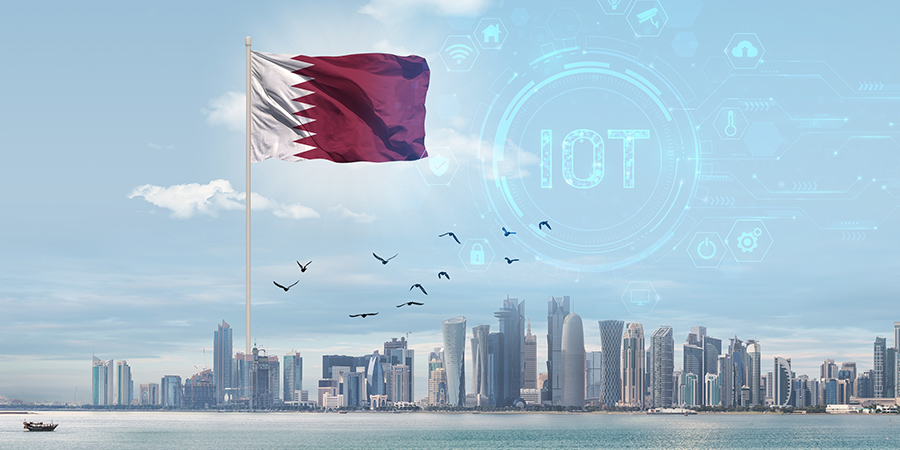Qatar is advancing towards harnessing growth in the IoT sector and is projected to generate a revenue of USD 1.3 billion (QAR 4.72 billion) this year by implementing various diversified enhancements driven by smart city technologies, according to a Statista report.
Among the various segments, automotive IoT is expected to be the leader in the market with a projected market volume of USD 353.3 million (QAR 1.2 billion) in 2024. The report also mentioned that IoT is set to surge steadily at a compound annual growth (CAGR) rate of 6.77% from 2024 to 2029, culminating in a market volume of USD 1.8 billion (QAR 6.54 billion) during the forecast period.
The country is known to be one of the “fastest-growing” economies among the GCC and Middle East and is shifting towards a notable digital transformation. Although some companies have implemented digitalization strategies, several reports note that over 70% of companies across the globe are expected to adopt digital transformation in the years ahead.
Also Read: Qatar Sets 2030 Targets to Achieve Government Excellence
Qatar’s Sustainable, Futuristic Roadmap
However, Qatar’s strategic vision serves as a roadmap to a sustainable and robust future across all key industries. As the public and private sectors lead the race towards cutting-edge e-commerce and digital payment technologies, Qatar’s digital transformation agenda has focused its efforts on identifying economic opportunities.
The country has been at the forefront of attaining digital transformation in the past decade by enhancing its economy and services across the nation. It has also made significant investments in technology infrastructure and carried out initiatives to foster the adoption of digital technologies in the market.
Over the past year, Google Cloud has made substantial progress in enhancing Qatar's digital infrastructure, fostering collaboration, and driving innovation across various sectors, solidifying its role in the nation’s digital journey.
Additionally, Vodafone Qatar's successful 5.5G trial, achieving speeds exceeding 10 Gbps, further underscores the country's commitment to advancing its telecommunications capabilities. This milestone not only highlights Vodafone’s contribution to enhancing Qatar's connectivity but also sets the stage for the next generation of high-speed, low-latency networks, essential for supporting the country's digital economy and smart city initiatives.
Furthermore, Huawei and Hamad Bin Khalifa University (HBKU) have inaugurated an AI ICT Lab, which plays a crucial role in equipping Qatar’s digital talents with the skills needed to thrive in a rapidly evolving technological landscape. This collaboration between academia and industry is essential for nurturing the next generation of digital leaders and ensuring that Qatar remains at the forefront of technological innovation.
Analysts note that these investments and initiatives have produced positive results, with increased efficiency and productivity in the public and private sectors.
Also Read: Qatar Launches Initiative to Boost Government Digital Services
However, Qatar has faced challenges such as cybersecurity threats and concerns over data privacy. Additionally, the country has found it challenging to develop the necessary human capital to support the growth of its digital economy.
Aligned with the Qatar National Vision 2030, organizational digital transformation stands out as a key driver of diverse economic growth, which bolsters the Internet of Things (IoT) market.
Additionally, Statista noted that the United States will generate the topmost revenue in the IoT market globally, set to accrue an estimated value of USD 947.5 billion this year.











